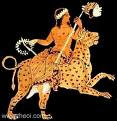It's official - I got the call from BACE today. My Chekhov & Stanislavski class is going forward tomorrow night with 5 students.
My goal in doing this is not to turn out perfect Stanislavski actors -- that takes semesters of intensive work. My goal is to give them a taste of the technique, to encourage them to explore this work in detail. I've had at least three or four solid Stanislavski-based teachers - all totally different - and learned a great deal from all of them. You can take the same technique, any school of acting you choose, hand it over to four teachers and they will each find something different in it. The Stanislavski system itself is a prime example - it gave rise to Meisner, Adler, HB and, to some degree, Strasberg. All different, all have their point of view and their value. I don't absolutely love them all. For example, I'm not mad for Method myself -- I much prefer Meisner -- but I have colleagues I respect who swear by it. And my attitude is, whatever works.
Of the four, I freely admit I'm most partial to Meisner. The best teachers I've had were Meisner-influenced and Meisner principles. Over the years I've discovered that most of the actors I admire studied with him.
The thing is, it takes many teachers and many ideas to bring a student to mastery. As I'm putting the finishing touches on my lesson plans, my overall question is - what is useful here? What will inspire them to go deeper on their own? How can they take these ideas and own them?
And there will be some who are shocked that I'm irreverent to this great master. I will admit I'm a fairly irreverent person. My second Estragon from my NYC production of "Waiting for Godot" quit halfway through rehearsals with the complaint that I wasn't treating Beckett with the appropriate reverence. I was lucky enough to replace him - and quickly - with absolute clone of Bert Lahr (the resemblance between the two was eerie) who was as irreverent as I was.
I'm almost done with Stanislavski's book and do not intend to follow it slavishly. My first goal is to create a safe environment for my class, so I will start with the exercises for physical awareness and set up a protocol for feedback. This is not just to safeguard egos, but to train them in observation. It may seem structured at first but I've had good results with it in other classes. Also, this process keeps the students in the audience invovled in what they're seeing. They know they'll be questioned at the end of each scene. What qualities does X have? What did you see? What did they do? What works?
These are important questions. And these are the questions we will all be limited to. The magic is not in the question themselves, but in how each student answers them, in how they hone their own process of observation.
I have tomorrow's class mapped out already - intros, presentation of each student onstage, then some exercises. Also, the prepared monologues. There will probably be some discussion about Stanislavski and why he was so important, but this will mostly be a class about doing.
We also have to create physical safety, so we will start with the focus on the Actor's Instrument which as you all probably know, is the voice and body.
After all, I don't want any would-be Kolyas breaking glass props in their hands.
Subscribe to:
Post Comments (Atom)


No comments:
Post a Comment